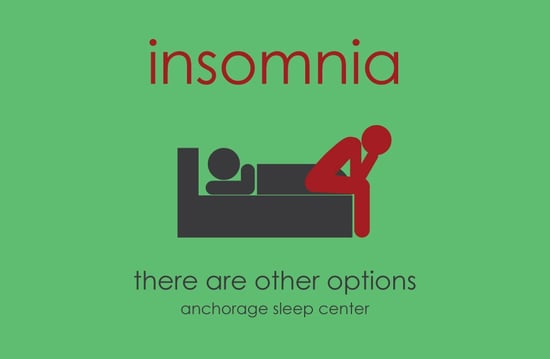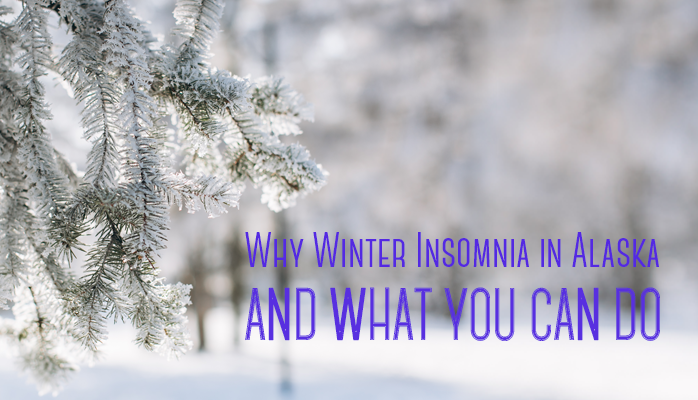Excess Darkness and Your Circadian Rhythm
Obviously, for those of us living in Alaska it’s no secret that we are operating under “unique” circumstances in summer and winter: mainly, lots of light, and lots of darkness. Though it might seem counter intuitive, the amount of excess darkness, which is significant in the Southeast and oppressive in the Far North, actually makes sleep more difficult for many people.
Why?
Simply put, the excess darkness is extremely disruptive. It disrupts your ability to get daylight. It disrupts your ability to be physically active. It can disrupt your hormone levels. The result: there are many ways for your circadian rhythm to be affected.
How Excess Darkness Affects Circadian Rhythm
Disrupted circadian rhythm quickly falls down the slippery slope of erratic sleep, quickly resulting in:
- Onset of insomnia or like-symptoms
- Increased severity of existing insomnia
Absence of daylight can interfere with the normal rhythm of your body’s production of melatonin, the hormone that helps regulate your circadian rhythm. Changes in light and darkness help cue production of melatonin:
- It is secreted about two hours before bedtime
- Its secretion ends upon waking up
As said, melatonin is light sensitive. Without the benefit of early morning light to cue a stop in melatonin secretion, you may feel tired. In Alaska where winter darkness are either especially long or a permanent fixture in the sky, you lack the environmental clues to naturally start and stop melatonin production.
This can lead to not producing enough melatonin before bed or producing melatonin too early. Either way, your circadian rhythm and subsequent sleep schedule can be thrown way off. Considering you have responsibilities like work, family, social life, etc., it’s your sleep time that generally ends up suffering.
Symptoms of Insomnia
Contrary to popular conception, symptoms of insomnia are not simply being unable to sleep. In fact, insomnia symptoms include [SleepEducation]:
- Daytime sleepiness
- Fatigue
- Lack of motivation
- Problems with attention, memory, or concentration
- Concerns and frustrations related to sleep (or lack of it)
- Moodiness
- Inability to fall asleep at desired times (i.e., erratic sleep cycle)
In the long Alaska winter, you may find these symptoms slowly cropping up in your life. Or, if you already struggle with insomnia, you may find them exacerbated.
It's also a tough revolving door because the excess darkness may lead to other problems, such as depression or anxiety, that can further increase severity of insomnia symptoms and likewise exacerbate problems like depression or anxiety.

Light Therapy to Combat Alaskan Winter Insomnia
Considering the importance of light for combating erratic sleep cycles, the first thing you may try to combat insomnia in Alaskan winters is light therapy.
Light therapy simply involves exposing yourself to bright fluorescent light bulbs encased in a box with a diffusing screen. This light is designed to simulate the intensity of light (10,000 lux) in a way that is safe for the eyes.
You can use this light box in virtually any capacity, such as:
- Next to your computer at work
- When you do you morning routine to get ready (read, eat breakfast, put on makeup, etc.)
- Reading
- Eating meals like dinner
The idea is to replace the darkness outside with artificial sunlight that you can turn on and off at about the times you see sunlight in a less extreme environment. In other words: timing is everything.
- Start exposing yourself to your light box in the morning
- Stop exposing yourself to your light box in the evening
Make sure to pay attention to the intensity of your light box. Less intense light boxes (i.e., 2,500 lux) will require more exposure.
What to Do When Light Therapy Fails to Combat Alaskan Winter Insomnia
If light therapy, among other sleep techniques, fails to help relieve your insomnia in winter, there may be other underlying issues at play.
In such cases, further intervention is probably a good idea:
- Consult with a sleep specialist
- Get a sleep study evaluation
- Consult with your healthcare practitioner


